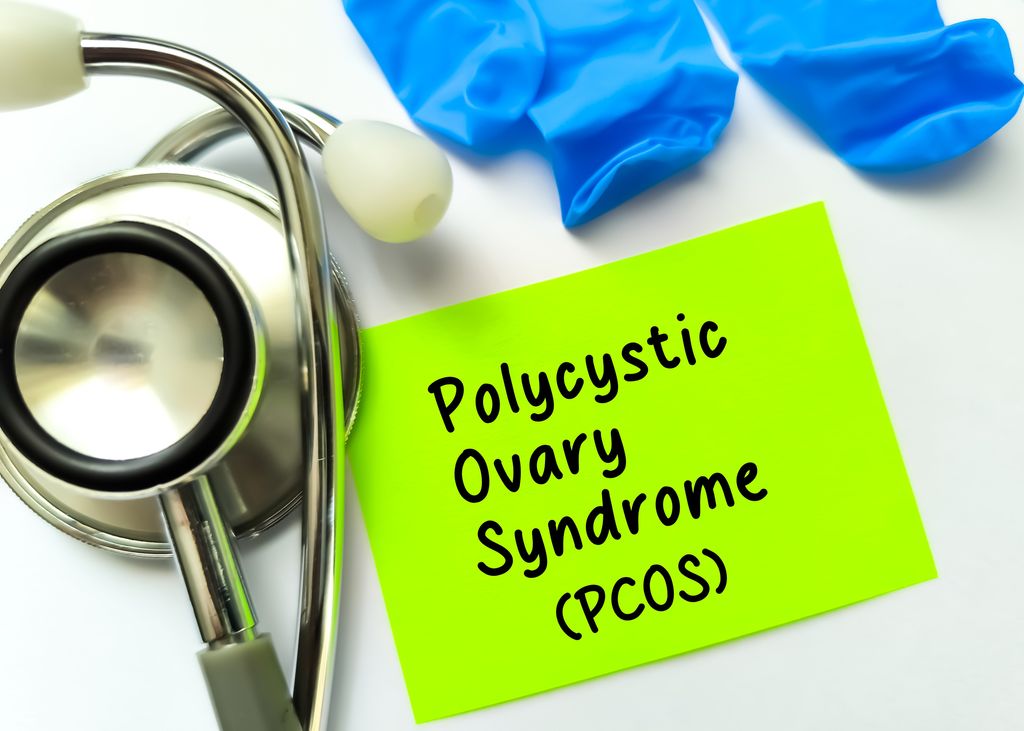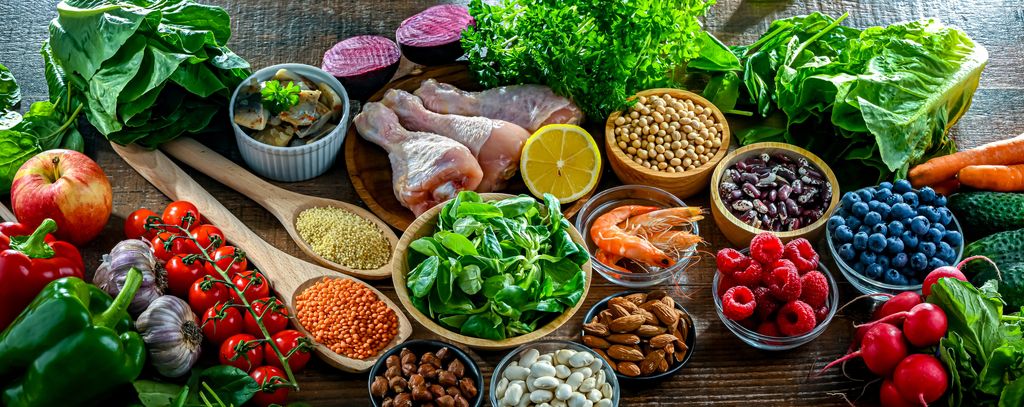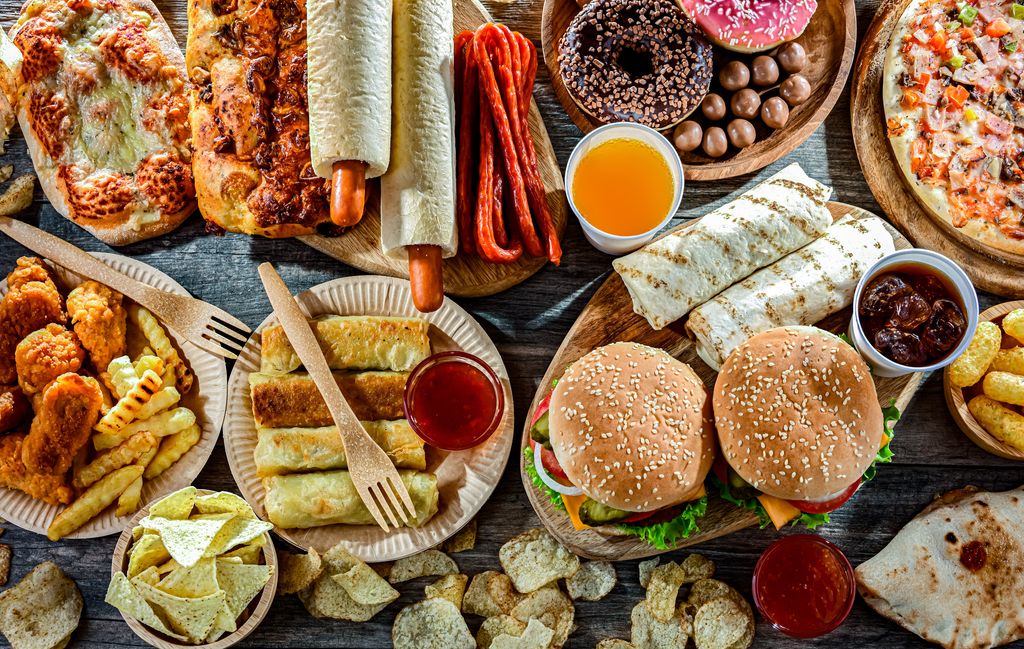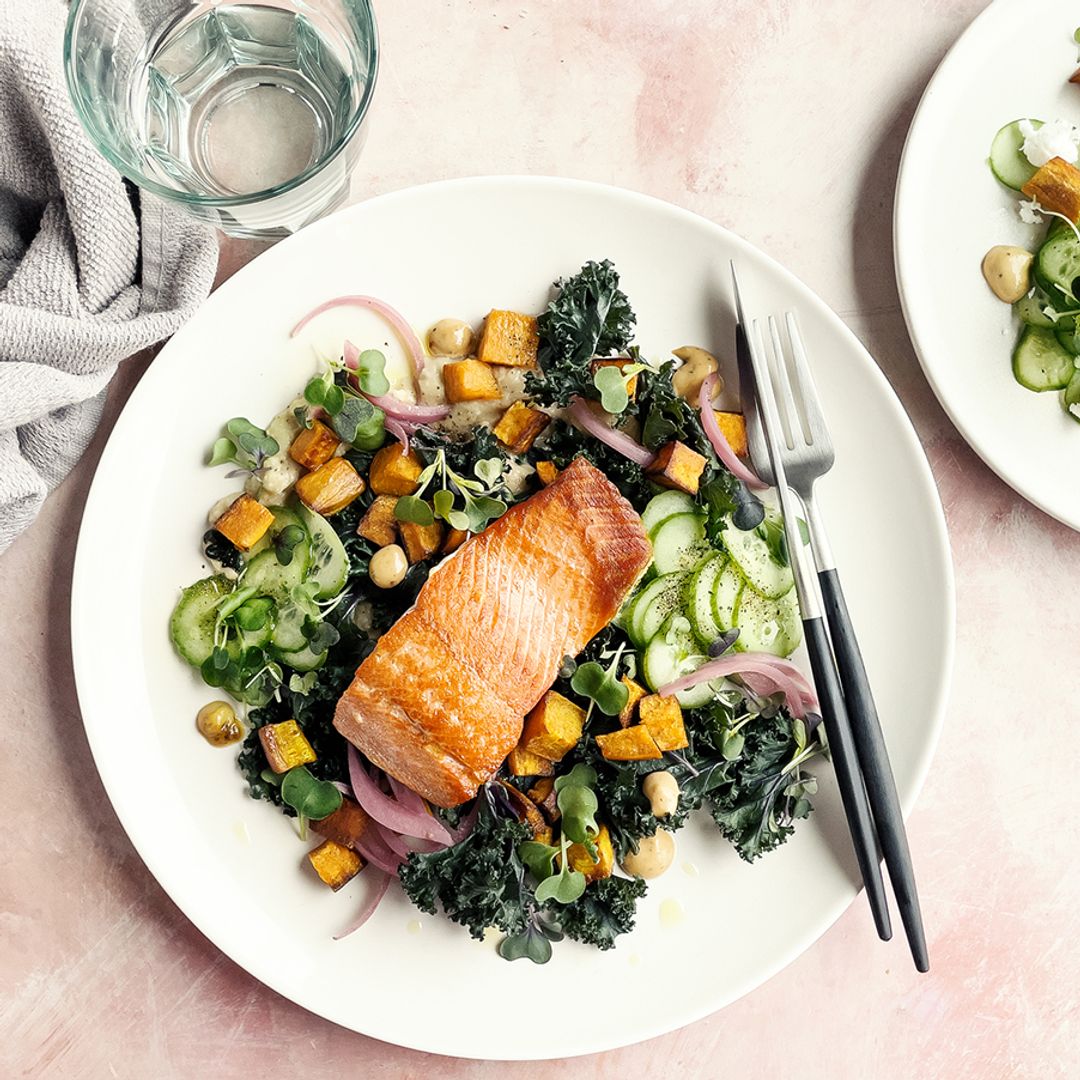Polycystic Ovary Syndrome (PCOS) affects up to 13 per cent of women globally, with many more thought to be undiagnosed. It can impact ovulation and is a leading cause of fertility, but lifestyle changes, including following a PCOS-friendly diet, can help to manage symptoms. We caught up with Phoebe Liebling, a Nutritional Therapist who works with Bare Biology, to find out the optimum diet for PCOS, including the foods to eat and avoid for the best results.
Is there an optimum diet for PCOS?
The key thing to understand is that PCOS isn’t one defined condition, so there can be variance in terms of what diet is most suited based on that woman’s path to PCOS. The most widely used basis for diagnosis is the Rotterdam criteria, and a woman is given a diagnosis of PCOS when 2 out of 3 of the following are present, once causes such as thyroid issues have been ruled out:
- Oligo or anovulation (irregular or absent ovulation)
- Hyperandrogenism (elevated testosterone, androstenedione, or DHEAS)
- Polycystic ovaries (20 or more follicles per ovary or ovarian volume >10mL).
Within PCOS, there are also 5 subtypes. Insulin-resistant PCOS is the most common, but we also have post-pill PCOS, inflammatory PCOS, adrenal PCOS and thyroid-related/secondary PCOS. As a foundation, however, all women with PCOS will benefit from a diet that focuses on blood sugar regulation and reducing inflammation. Many will suggest a low-carb regime; however, there is significant nuance here. When someone is presenting with high insulin levels, their system is geared towards energy storage rather than energy use, and we have two main macronutrients for energy: carbohydrates and fats.
Carbohydrates are our quicker-burning fuel source, and fats are slower-burning, but fats are also more energy-dense (contain more calories per gram). So the issue many will find on a low-carb diet is that they then crave fats as their body assumes that they are switching to the latter as their primary fuel source. However, this doesn’t match what their body is looking to use, so they store more, and thus, the classic weight management issue many PCOS women face is worsened.
What we want is to look for a protein-rich diet, paired with low GI, high fibre carbs, and moderate fats. This provides steady energy, preserves lean muscle, and if combined with muscle-activating movement (resistance training), will work progressively to resolve the insulin-related issues with fatigue, weight gain and cravings.
What foods help with symptoms of PCOS and why?
Oats, quinoa, buckwheat, wild rice, sweet potatoes, berries, apples - These low-glycaemic carbs regulate blood sugar and improve insulin sensitivity; fibre supports gut health and lowers cholesterol.
Broccoli, kale, Brussels sprouts, spinach, rocket, chard - Cruciferous and green veg aid oestrogen metabolism, provide magnesium and folate, reduce inflammation.
Avocado, olive oil, walnuts, chiaseeds, flaxseed, oily fish (salmon, sardines, mackerel) - Healthy fats contain omega-3s which reduce inflammation, support hormone production, improve satiety and blood sugar balance.
Eggs, chicken, turkey, fish, Greek yoghurt (if tolerated), tofu/tempeh - Lean proteins stabilise blood sugar, support muscle mass (improves insulin sensitivity) and provide building blocks for hormones.
Flaxseeds, pumpkin seeds, sesame seeds, almonds, Brazil nuts - Seeds and nuts contain lignans, which modulate oestrogen, and are also rich in zinc, which supports ovulation and skin, and selenium, which supports thyroid and ovarian health.
Cinnamon, turmeric, ginger, green tea - These anti-inflammatory herbs and spices improve insulin sensitivity, lower CRP, reduce androgens and support weight management.
Berries, pomegranate, herbs, leafy greens - Polyphenol-rich foods reduce oxidative stress, support ovulation and improve vascular health.
Sauerkraut, kimchi, kefir, yoghurt, miso - Fermented foods nourish the gut microbiome, improve insulin resistance, support hormone clearance and digestion.
Are there any foods you recommend women with PCOS avoid?
White bread, pastries, cakes, sugary cereals - High-glycaemic carbs will spike blood sugar and insulin, worsening insulin resistance.
Sugary drinks (soda, energy drinks, fruit juice) - These cause a rapid glucose surge which drives insulin spikes and inflammation.
Processed snacks (crisps, biscuits, crackers) - Refined carbs and unhealthy fats increase inflammation and cravings due to low satiety.
Fried foods, fast food, processed meats - These are high in trans fats and additives which promote inflammation and oxidative stress.
Excess red meat, especially processed (sausages, bacon) - These are linked with higher inflammation and androgen excess; can disrupt gut balance.
Dairy with added hormones (non-organic milk, cheese, ice cream) - These may increase insulin and IGF-1, worsening acne and hormone imbalance in sensitive women.
Alcohol, especially beer and sweet cocktails - Affects liver detoxification of hormones, raises blood sugar and inflammation.
Artificial sweeteners (diet sodas, sugar-free gums, processed 'low-calorie' snacks) - May disrupt gut microbiome and insulin response despite being "sugar-free".
Which supplements can support women with PCOS?
This would depend on the form of PCOS a woman has. There are some commonalities, but I would always advise seeking the advice of someone trained in therapeutic supplementation if possible, as quality, dosage and timing are key.
Foundational tips for all subtypes:
- Magnesium helps with insulin sensitivity, stress, sleep, PMS, and thyroid function
- Omega-3 supports mood, inflammation, insulin, and hormones
- Vitamin D is often low in PCOS and is essential for ovulation, mood, and immunity
- Always take zinc and magnesium with food and not together (they compete)
- Pair fat-soluble vitamins (A, D, K) with meals containing healthy fats
As a more specific example for insulin-resistant PCOS (the most common form), I would be looking at a regimen like the one below.
Morning:
- Myo-Inositol + D-Chiro Inositol 2000 mg Myo / 50 mg DCI
- Vitamin D3 + K2 2500 IU / 90 mcg K2
- Chromium 200 -300 mcg
- Magnesium glycinate (optional a.m. dose) 100 mg
Lunch:
- Omega-3 (EPA/DHA) 2000-3000 mg
- Chromium 200 -300 mcg
Evening:
- Myo-Inositol + D-Chiro Inositol 2000 mg Myo / 50 mg DCI
- Bedtime Magnesium glycinate 200 - 400 mg












